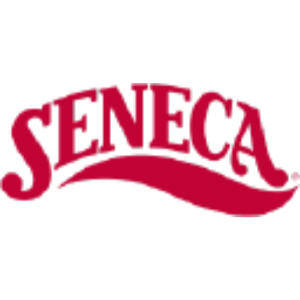Welcome to our dedicated page for Seneca Foods news (Ticker: SENEA), a resource for investors and traders seeking the latest updates and insights on Seneca Foods stock.
Seneca Foods Corporation (NASDAQ: SENEA), a leader in North American packaged fruit and vegetable production, maintains this dedicated news hub for investors and industry stakeholders. Our curated collection provides direct access to official press releases, financial disclosures, and strategic updates from the company that sources produce from over 2,000 U.S. farms.
This resource serves as your primary source for tracking SENEA's operational developments, including earnings announcements, supply chain initiatives, and private-label partnerships with major retailers. Discover updates on agricultural sourcing practices, production facility expansions, and new product launches across canned, frozen, and snack categories.
With coverage spanning retail market strategies to food service sector developments, this page consolidates critical information for assessing Seneca Foods' position in the packaged foods sector. Bookmark this page to monitor how the company's farm-to-table network and brands like Libby’s® influence its performance in evolving consumer markets.
Seneca Foods (NASDAQ: SENEA) has reported its financial results for Q3 and nine months ended December 28, 2024. The company's net sales for the nine-month period reached $1,233.0 million, up from $1,150.6 million in the previous year, marking an increase of $82.4 million primarily due to higher sales volumes.
However, gross margin decreased to 10.9% from 14.6% year-over-year for the nine-month period. The third quarter saw net sales of $502.9 million, compared to $444.5 million in the same quarter last year, with gross margin declining to 9.8% from 12.2%.
CEO Paul Palmby noted a 16% increase in unit volume sales in Q3, but highlighted margin pressure due to poor 2024 pack season caused by historic rainy weather in primary growing areas. The company experienced strong operating cash flow and debt reduction due to short pack combined with robust sales momentum.
Seneca Foods reported financial results for Q2 and first half of fiscal 2025. Net sales reached $730.2 million for the six months ended September 28, 2024, up from $706.1 million in the same period last year, primarily due to higher sales volumes. However, gross margin decreased to 11.7% from 16.1% year-over-year. Q2 net sales were $425.5 million, up from $407.5 million, with gross margin declining to 10.1% from 14.3%. Core business case volumes increased 9.9% in the first six months, excluding co-pack business. The company noted increased unit costs due to inventory reductions and unfavorable growing weather, though working capital trends and operating cash flow improved.
Seneca Foods (NASDAQ: SENEA, SENEB) reported financial results for Q1 fiscal 2025 ended June 29, 2024. Net sales increased to $304.7 million, up from $298.7 million in Q1 fiscal 2024, driven by higher sales volumes. However, gross margin decreased to 14.0% from 18.5% in the same period last year. CEO Paul Palmby noted a solid first quarter with positive volume momentum in the core vegetable business, despite category headwinds. Contract manufacturing volumes were below forecast due to timing, but are expected to recover later in the fiscal year. Margins remain pressured compared to last year due to higher cost inventory and a competitive pricing environment.
Seneca Foods (NASDAQ: SENEA, SENEB) announced its financial results for Q4 and the fiscal year ending March 31, 2024. Annual net sales were $1,458.6M, a decrease from $1,509.4M in the previous year due to lower sales volumes, partially offset by higher selling prices. The gross margin percentage increased to 12.9% from 6.9%. For Q4, net sales were $308.0M, down from $331.1M the previous year, again due to lower sales volumes but higher prices. Q4 gross margin improved to 6.7% from -4.3%.
CEO Paul Palmby noted that despite a year-over-year decline in sales and earnings in the seasonally weak Q4, fiscal 2024 was historically the third best on an operating basis for Seneca Foods.

